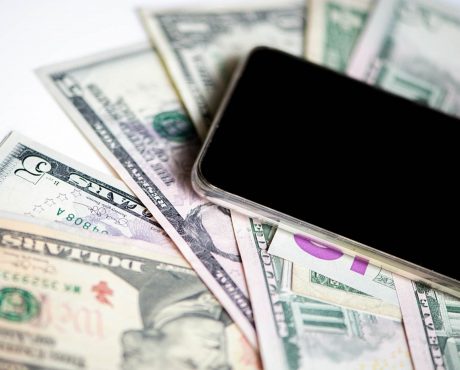Warren Buffett Loads up on VZ Stock
Among all the investing legends, Warren Buffett has perhaps the biggest following, and for a very good reason. His company, Berkshire Hathaway Inc. (NYSE:BRK.B), delivered a total return of 2,810,526% from 1964 to 2020, dramatically outperforming the S&P 500’s 23,454% return over the same period (and making numerous shareholders rich in the process). (Source: “Berkshire’s Performance vs. the S&P 500,” Berkshire Hathaway Inc., February 27, 2021.)
What’s less talked about, though, is that Buffett has a strong preference for blue-chip, dividend-paying companies, which aren’t exactly known for making big moves. In this day and age, astronomical gains are mostly associated with “YOLOing” options on meme stocks.
Buffett’s strategy—while seemingly boring—has worked over the long haul. The reason is that he has been able to identify not just any blue-chip dividend stocks, but ones with durable competitive advantages. And this year, we learned that Buffett added another of those names to his investment portfolio: Verizon Communications Inc. (NYSE:VZ).
Verizon’s durable competitive advantage—or as Buffett likes to call it, economic moat—is very easy to see. It’s one of the leading telecommunications companies in America, and it also has a presence around the world. The company provides a wide range of technology, communications, information, and entertainment products and services.
Verizon is one of the largest wireless carriers in the U.S., with a 4G LTE network covering 99% of the American population. It was also the first company in the world to launch a commercial 5G mobile network with a commercially available 5G-enabled smartphone.
Here’s why Verizon Communications Inc. is in a great position: the amount of money needed for a company to enter the telecom business is prohibitively high. And even those with enough capital have to go through many regulatory hurdles in order to build the infrastructure needed to provide telecom services.
That’s one of the reasons why, in the vast economy that is the U.S., there are only three major wireless carriers: Verizon, AT&T Inc. (NYSE:T), and T-Mobile US Inc (NASDAQ:TMUS). By limiting the number of competitors, the existing players in the game get to earn oversized profits.
The business is quite durable, too. Whether the economy is in an expansion or contraction, most people will keep their Internet and cell phone plans. As a result, Verizon can make money through thick and thin.
Warren Buffett’s company first revealed its stake in Verizon stock in February 2021, showing that it owned a whopping 146.7 million shares of Verizon as of December 31, 2020. (Source: “Form 13F Information Table,” U.S. Securities and Exchange Commission, last accessed June 11, 2021.)
Fast-forward three months and Berkshire Hathaway Inc.’s latest 13F filing shows that the company increased its stake in Verizon Communications Inc. to 158.8 million shares. At the current share price, Buffett’s Verizon position is worth more than $9.0 billion. (Source: “Form 13F Information Table,” U.S. Securities and Exchange Commission, last accessed June 11, 2021.)
Keep in mind that, unlike the overall stock market—which has gone up quite a bit in recent years—VZ stock has been trading mostly sideways. In fact, the price of Verizon stock is about the same as it was two years ago.
That means Verizon is able to have a price-to-earnings ratio of about 12.5 at the time of this writing, a very low figure in a market filled with bloated valuations. At the same time, the fact that VZ stock did not shoot through the roof allows it to offer an attractive yield to income investors.
With a quarterly dividend rate of $0.6275 per share, Verizon stock has an annual dividend yield of 4.4%.
The payout has been consistently rising, and because of the resilience in the company’s business, even the COVID-19 pandemic didn’t stop that streak. Verizon has paid a higher dividend every year since 2006, and its dividend hike was announced in September 2020. (Source: “Dividend History,” Verizon Communications Inc., last accessed June 11, 2021.)
Verizon has growing financials to back its higher payouts.
Last year, despite impacts from the COVID-19 pandemic, the company earned an adjusted net income of $4.90 per share, up from $4.81 in 2019. Verizon also generated $41.8 billion of operating cash flow in 2020, representing a 16.8% increase year-over-year. Its free cash flow was $23.6 billion for the year, up 32.4% from 2019. (Source: “Verizon Ends 2020 With Strong Earnings and Cash Flow, and Increased Wireless Service Revenue Growth,” Verizon Communications Inc., January 26, 2021.)
And things continued to improve in 2021.
In the first quarter of this year, Verizon’s adjusted earnings came in at $1.31 per share, compared to $1.26 in the first quarter of 2020. Its operating cash flow totaled $9.7 billion for the quarter, up by about $900.0 million from a year earlier. The company’s free cash flow was $5.2 billion, marking a substantial increase from the $3.6 billion in the first quarter of 2020. (Source: “Verizon Reports Strong Start to 2021 as Company Accelerates 5G Growth,” Verizon Communications Inc., April 21, 2021.)
For full-year 2021, management expects Verizon to generate adjusted earnings of $5.00 to $5.15 per share. If the company meets this guidance range, it will achieve another year of bottom-line growth.
Bottom Line on Verizon Communications Inc.
In today’s market, there are plenty of more exciting tickers than VZ stock. But when it comes to dividends, it’s hard to deny that a safe 4.4% yield—with continuous payout increases—is a very tempting proposition.
And since Verizon stock gets the approval from the Oracle of Omaha, income investors might want to take a serious look at Verizon Communications Inc.
